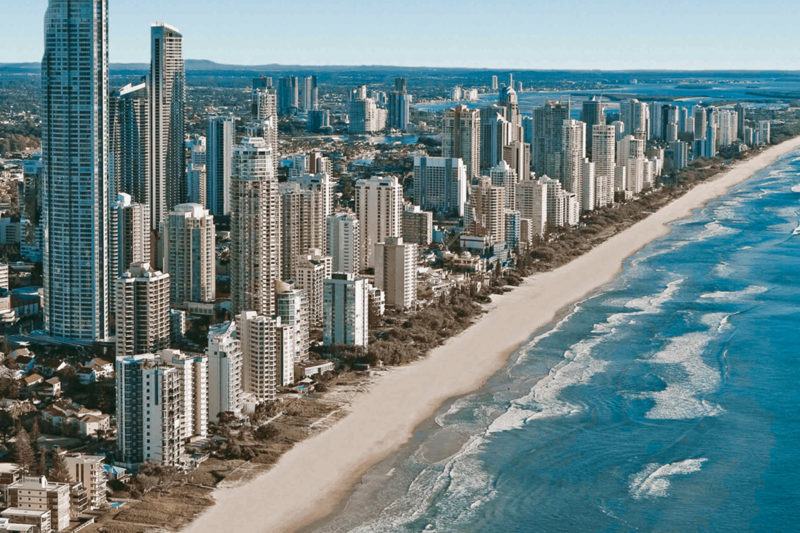
Why Study in New Zealand?
Qualifications Globally Recognised
It has a progressive education system with state of art facilities. Qualifications are internationally recognized. There are wide range of study opportunities, including state administered primary, secondary schools, universities, polytechnics, colleges of education and private training establishments. The NZQA assures the quality of programme offered by state institutions and a private establishment, which in turn ensures that programmes offered in New Zealand, maintain international recognition.
Moderate entry requirements
Unlike the situation in the UK and many other countries, New Zealand does not have massive competition to enter the first year of a university degree. This is because the New Zealand government has invested heavily in university education over the years. As a result New Zealand has more capacity than it has students. Good students with moderate grades can gain entry to most Bachelor degree programmes without any problems. Therefore, entry requirements are moderate compared with most of the top universities in the UK.
Migration and Job search Opportunity
Students are given a visa to search for a job after completion of their course and also have a good opportunity to migrate.
Value for Money
The cost of study in New Zealand is generally less expensive than other English speaking countries. The chance to combine studying with travelmakes New Zealand even more interesting to choose as an opportunity to study and work in and is known for it’s very high standards of education. The country has a comparatively low cost of living, abundant fresh food at reasonable prices and a wide variety of student accommodation options. Transport is also moderately priced, affording easy access to rivers, mountains, lakes, forests and beaches and the recreational opportunities they provide.
Improve your English
As English is the day-to-day language in New Zealand, Bangladeshi students find it very easy to study, live and interact in New Zealand. Moreover the New Zealand accent is easy to understand.
Clean, Green and Safe Country
New Zealand offers a safe learning environment. It is the first country in the world to declare itself as a nuclear free zone. The environment is green, clean and uncrowded with a small populations and wide open spaces.
Work while you study
All students on a student visa can work up to 20 hours per week during semester and full time during vacations i.e. 40 hours. Many New Zealand institutions offer a student employment service called ‘Student Job Search’ to help you find work.
Documents Required
- You must have a passport that is valid for at least three months past the end of your intended stay.
- Payment of a non-refundable application fee.
- 3 recently taken passport size photographs.
- An offer of place from an educational institution, which states that you have been accepted by the institution, the name of the course, the minimum time required to complete the course, and whether a course fee must be paid or the student is exempt from the fee (e.g. scholarship students). This will be sent to you by the institution confirming your enrolment.
- Evidence of payment of the fee or exemption from the fee (not necessary if your application is being approved in principle).
- A written guarantee from an institution or person that suitable accommodation is available to you in New Zealand.
- Evidence of sufficient funds to live on while you are studying
- A return air ticket to your country, or evidence of sufficient funds to buy one.
- If you are spending at least six months in New Zealand you may need to provide a medical certificate to show that you meet the acceptable standard of health.
- For courses longer than 24 months, you’ll also need to provide medical and x-ray certificates that are less than 3 months old.
- If you’re over 17 and studying in New Zealand for longer than 24 months, you’ll need a police certificate to show that you are of good character.
- People applying for student visas or permits who intend spending more than 6 months in New Zealand must be screened for tuberculosis (TB).
- So that the immigration service can be sure you will leave New Zealand when you have finished your course of study, you will need to show how you will leave New Zealand.
- You must have appropriate and current medical and travel insurance while you’re studying in New Zealand.
Application Procedure
Intakes
The academic year is from mid / late February to early November and most Universities have 2 semesters with a holiday of 4 weeks in June. Each University operates slightly different dates and some also offer summer school in the main holiday period in November to February. Intakes are in February, July and sometimes in September.
English Language Requirements
If English is not your first language, you will also need to be able to prove that you are reasonably proficient at English.
You can do this by taking an IELTS or TOEFL test, the results of which you will have to submit along with your application form.
For this, there will normally be a minimum score you must achieve in order to be accepted on to the course.
Academic Requirement
| Level of Studies | Requirements |
| Advanced Diploma/Diploma/Certificate | GPA 3.5 – 4.0 in HSC |
| Bachelors Degree | GPA 4.0 – 5.0 in HSC |
| Post Graduate Certificate/Diploma | Higher Second Class in Bachelors Degree (3 or 4 years) |
| Masters degree | First Class in Bachelors Degree (4 years only) |
Each institution sets its own entry requirements, and you will find that they vary between the eight universities. Your application will normally be assessed on your current level of qualification.
For example, if you have UK or Irish qualifications, you may have A Levels, Scottish Highers or Advanced Highers, Irish School Leaving Certificate, BTEC National Diploma, International Baccalaureate, or a degree from a UK or Irish university.
These qualifications are all accepted for entrance to a degree program at all the universities in New Zealand, although you may have to sit extra tests if you are applying to study medicine or dentistry.
Levels of programs offered by New Zealand institutions:
- Certificate are levels 1 to 4
- Diplomas are levels 5 & 6
- Bachelors degree & certificates are level 7
- Post Graduate Diplomas & certificates & Bachelors degrees with honors are level 8.
- Masters degrees are level 9
- Doctoral degrees are level 10

